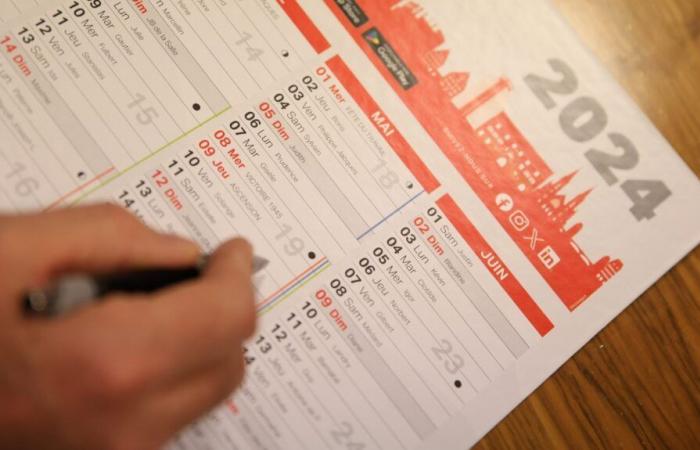Will the French have to work an extra day, without being paid more, to help the country's social system? The idea of a second day of solidarity, supported by Republican senators, is gaining ground, while the examination of the Social Security financing bill is due to begin on Wednesday November 13 in the Senate.
The solidarity day was launched in 2004, a year after the deadly heatwave of 2003, and helps to partly finance the autonomy of the elderly. As recalled by National solidarity fund for autonomy,Employers contribute 0.3% of their payroll, and organize work accordingly. The amount of this solidarity contribution for autonomy (CSA) amounted to 2.4 billion euros last year, according to the national fund which manages the autonomy branch of Social Security.
This CSA represents only part of the fund's revenue – 41.8 billion euros last year – far behind the general social contribution (CSG). Another system, the additional solidarity contribution for autonomy (Casa), has been applied since 2013 to retirement and disability pensions – 0.9 billion euros.
Four years ago, Laurent Vachey, Inspector General of Finance, had already studied the idea of a second day of solidarity, alongside other financing proposals. He then mentioned, in his report (PDF), “uncertain effects on the economy and employment”adding that “the social partners are generally hostile to it”.
These reservations did not prevent the Senate Social Affairs Committee from taking up this proposal at the end of September, as part of an information report on the situation of nursing homes. “Such a measure would make it possible to contribute significantly” expenses “towards medico-social establishments and services”wrote the rapporteurs.
In the process, several parliamentarians, particularly at the center, took up this idea. At the beginning of October, in Les Echosthe former minister Gérald Darmanin had in turn defended the principle of a second day of solidarity, “in the public as well as in the private”. “The day of solidarity is not unanimous within the group”however, confides to franceinfo a deputy from Ensemble pour la République.
The government is now leaving the initiative to parliamentarians, while welcoming possible initiatives in this direction. Guest on TF1 at the end of October, Laurent de Saint-Martin, Minister of the Budget, said he was open to a parliamentary discussion on the issue. “I think that everything that allows our country to show that we can work harder to participate in the recovery effort is going in the right direction”. The Minister of the Economy, Antoine Armand, followed suit. “The government has not proposed it but I believe that some parliamentarians want to present ithe estimated on LCI, judging the “very interesting proposal”. A “track among others”he then clarified in Les Echos.
Eleven public holidays are registered on the French calendar, in the high average of European countries. At this stage, no one in particular is in the sights. But Souvenir français, a memorial association for fighters who died for France, still expressed its position. Its president Serge Barcellini thus estimated that November 11 was “untouchable”.
These debates, however, remain symbolic. The solidarity day was initially set for Pentecost, but since 2008, companies have had complete freedom to distribute this contribution as they wish. They can organize it in place of any public holiday or otherwise arrange working time (loss of RTT, spread of seven hours, etc.). “We are not calling into question November 11, May 8 or Ascension Thursdayexplained Senator Chantal Deseyne, co-rapporteur of the text, on Public Senate. The seven hours can be spread over the year, anything is possible”.
In the meantime, the left and the unions are already denouncing this potential doubling of the special contribution, from 0.3% to 0.6% of the payroll. “The problem is that the solidarity day only concerns workersdeplores environmentalist senator Anne Souyris in The New Obs. There is no reason why dividends and financial income should not also be contributed.” “We have already had a pension reform, three unemployment insurance reforms, a reform of the Labor Code, the freezing of salaries in the private and public sectors, so we must stop making fun of the world”reacts Sophie Binet, general secretary of the CGT interviewed by France 2.
“Politically, it would be quite costly for a fairly moderate economic gain for businesses”analyzes the economist ofFrench Observatory of Economic Conditions, Mathieu Plane, in The Parisian. “There are billions missing, everyone knows that we are going to get hit in the nose”comments the sociologist Jean Viard, interviewed by The Dispatch. Ultimately, eliminating a public holiday is less painful than an increase in social security contributions or taxes, even if it means a bit of cash at the end of the month…”






